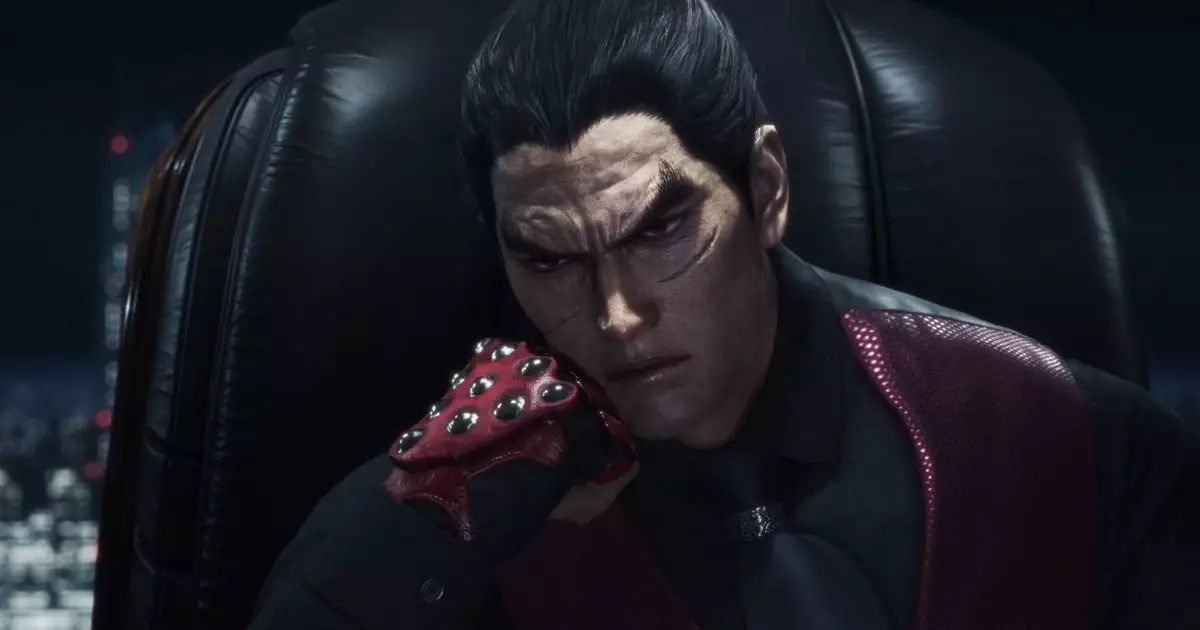For those enamored with the glitz and glamour of the gaming world, the intense pressure that developers face often goes unnoticed. Behind every hit game is a narrative not only filled with challenges but marked by the dire consequences of relentless stress. Katsuhiro Harada, director of the iconic Tekken series, recently divulged details from his tumultuous journey during the development of Tekken 4. This reveals the hidden struggles of game creators, showcasing how the relentless pursuit of excellence can take a significant toll on mental and physical health.
In 2001, when Tekken 4 launched, it didn’t quite meet the soaring expectations previously set by its predecessors. Harada cited the intense psychological burden he faced as a major contributor to the game’s less-than-stellar reception. “I was under so much stress that I developed a mysterious condition where all the hair on the right side of my body fell out,” he shared. Such a unique ailment highlights the severe effects that stress can inflict, calling attention to the often-overlooked psychological dimensions of game development.
Understanding Stress-Induced Ailments
The narrative of Harada’s hair loss brings to light the severe impacts of stress on our bodies, sometimes leading to conditions such as alopecia areata. This particular disorder can provoke significant hair loss due to an abnormal immune response, spurred on by stress. As captivating as the world of video games may be, it is essential to acknowledge that for those behind the scenes, this industry can morph into a breeding ground for anxiety. Harada’s story acts as a poignant reminder that the human toll involved in creating interactive experiences can’t be brushed aside.
The gaming community often idolizes developers as visionary artists. However, a poignant question arises: At what cost does this artistry come? The weight of expectations, lengthy development cycles, and a seemingly constant stream of criticism can place developers in virtually untenable situations. Harada’s acknowledgment of his own mental state during the development of Tekken 4 challenges the glamorized portrayal of game design and highlights the importance of mental health in the industry.
The Pressure to Perform
Reflecting on his experience, Harada noted, “I didn’t have a single ally. Not one.” This sense of isolation is a common theme among creators—a fear of vulnerability that can perpetuate an unhealthy work culture. Developers often find themselves shouldering the blame for any perceived failures, suffering in silence due to the weight of public scrutiny. This dynamic complicates an already stressful industry and fuels a cycle where ambition can lead to burnout.
It’s essential to recognize that while Harada has since navigated through these murky waters to continue developing Tekken games successfully, his story isn’t unique. Many in the industry echo similar sentiments, revealing a broader concern about workplace culture in gaming. It’s a raging conundrum: how can creators maintain their passion and resilience without succumbing to the pressures that come with their job?
Evolving Perspectives
Interestingly, the retrospective appreciation of Tekken 4 provides a lens through which we can examine growth and change in a developer’s journey. Harada’s reflection on the public’s evolving perception of the game emphasizes a significant truth about the gaming community: critics can often forget the context around a title, especially when removed from its initial release. “Now, critics have forgotten their complaints, and only those who want to praise the game remain,” Harada commented.
This shift in sentiment highlights a broader pattern within the industry, showcasing that time can alter perceptions. While developers like Harada wrestle with the immediate pressures of development, fans may one day look upon past failures as part of a greater narrative. The transition from criticism to praise forces us to reconsider how we engage with the gaming industry and its creators, advocating for understanding rather than judgment.
Redefining Success
Looking forward, it’s clear that the psyche of game developers plays a pivotal role in the evolution of the industry. Harada, now leading the charge for Tekken 8, stands as a testament to resilience. His journey symbolizes the transformative power of turning adversity into strength.
As we anticipate newer game releases, an important conversation around mental health within the gaming industry continues to gain traction. Recognition of this arduous balancing act between creativity and well-being is critical for fostering an environment that promotes both innovation and mental health among developers. It’s high time the industry cultivates a culture that values its creators, ensuring that their stories—filled with passion, sacrifice, and often pain—are told alongside the thrill of the games that fans cherish.

